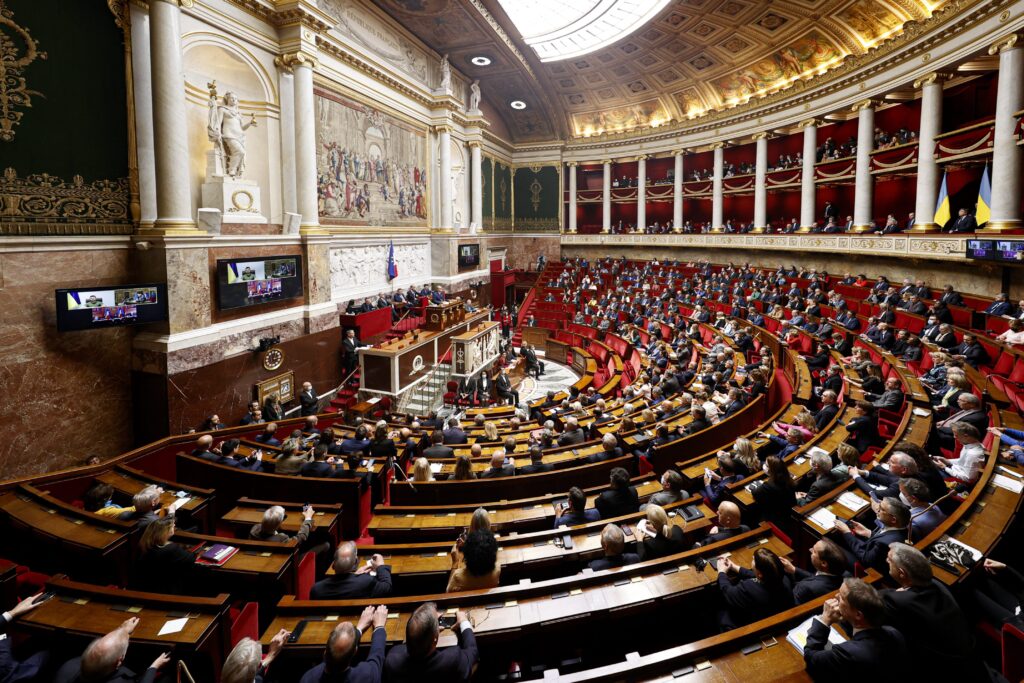Amid the political uncertainty surrounding France following the dissolution of the National Assembly and the early parliamentary elections called by Emmanuel Macron, a complicated future for electromobility in the country looms.
Especially if Marine Le Pen and her far-right party, Rassemblement National (RN), manage to secure a significant majority.
Why? Because Le Pen has expressed her intention to withdraw France from the European Union’s (EU) Green Deal and does not prioritize the development of sustainable mobility or other progressive environmental policies.
This strongly contrasts with the current efforts of Macron and other European leaders to promote clean and sustainable technologies.
Additionally, Le Pen could adopt a firm stance against the ecological measures imposed by the EU, including potentially disengaging from the Paris Climate Agreement and opposing environmental regulations deemed harmful to the French economy.
Her approach would focus on promoting national energy production and consumption, as well as reducing VAT on energy products, which could benefit both electric vehicles (EVs) and diesel, creating a counterproductive effect.
Tony Renucci, executive director of Respire, expressed his concern: “I think dissolving the National Assembly at this moment, right before major international events, might have been a mistake.”
“There is a lot of uncertainty about how the situation will be managed and about security. Moreover, we do not know if we will have a stable government or a clear majority, which adds more anxiety,” he adds.
In a framework of political cohabitation, where the current president might be forced to share the government with a far-right prime minister, the implementation of pro-environmental measures such as electromobility could be stalled or reversed.
Historically, political cohabitations in France have involved compromises and negotiations, but they have also limited the president’s ability to advance significant reforms without the support of the parliament.

The future of eMobility in France, therefore, is crucially tied to the results of these elections and the type of government that emerges from them.
In the context of increasing political polarisation and global environmental concerns, the direction the country takes will not only affect its internal policies but also its position in the European context regarding the transition to cleaner and more sustainable energies.
In this regard, Renucci states: “On the other hand, in terms of political debate, I think this situation has allowed everyone to be honest about their opinions and causes.”
“We have seen clearly that some people lean towards the far-right, which has provided some clarity to the political landscape,” he adds.
Possible scenarios and their impact on electromobility
If Macron’s party, Renaissance, manages to secure the absolute majority of 289 seats in the National Assembly, the president would have the capacity to appoint a prime minister from his party, likely Gabriel Attal.

This would allow Macron to continue with his pro-environmental agenda, including the push for electromobility.
Sustainability policies and commitment to the EU’s Green Deal would remain a priority.
Secondly, if Renaissance obtains a relative majority, where the party is the largest but without the majority, it would need to form alliances to govern, implying constant negotiations to pass laws.
Electromobility could advance, but more slowly and with possible compromises, depending on the alliances Macron secures.
However, if another party obtains a relative majority but fails to form a governing coalition, France could face political stagnation.
The implementation of new policies, including electric mobility, could be severely delayed or blocked, especially since the strongest opposition to the administration is Rassemblement National.

This scenario would generate governmental paralysis, hindering progress in environmental and technological initiatives.
Finally, if Marine Le Pen’s Rassemblement National secures the majority of votes, Macron would be forced to appoint a prime minister from that party.
In this case, the young candidate Jordan Bardella, who had openly called on the president to call parliamentary elections.
In a cohabitation with the far-right, pro-environmental policies could significantly regress.
To conclude, the interviewee opines that the ruling “is not really related to what is happening in France,” since “it is based on the results of a European election, different from local elections.”
“I do not think it justifies the interest of disrupting the department, but it is his choice,” he ends.






